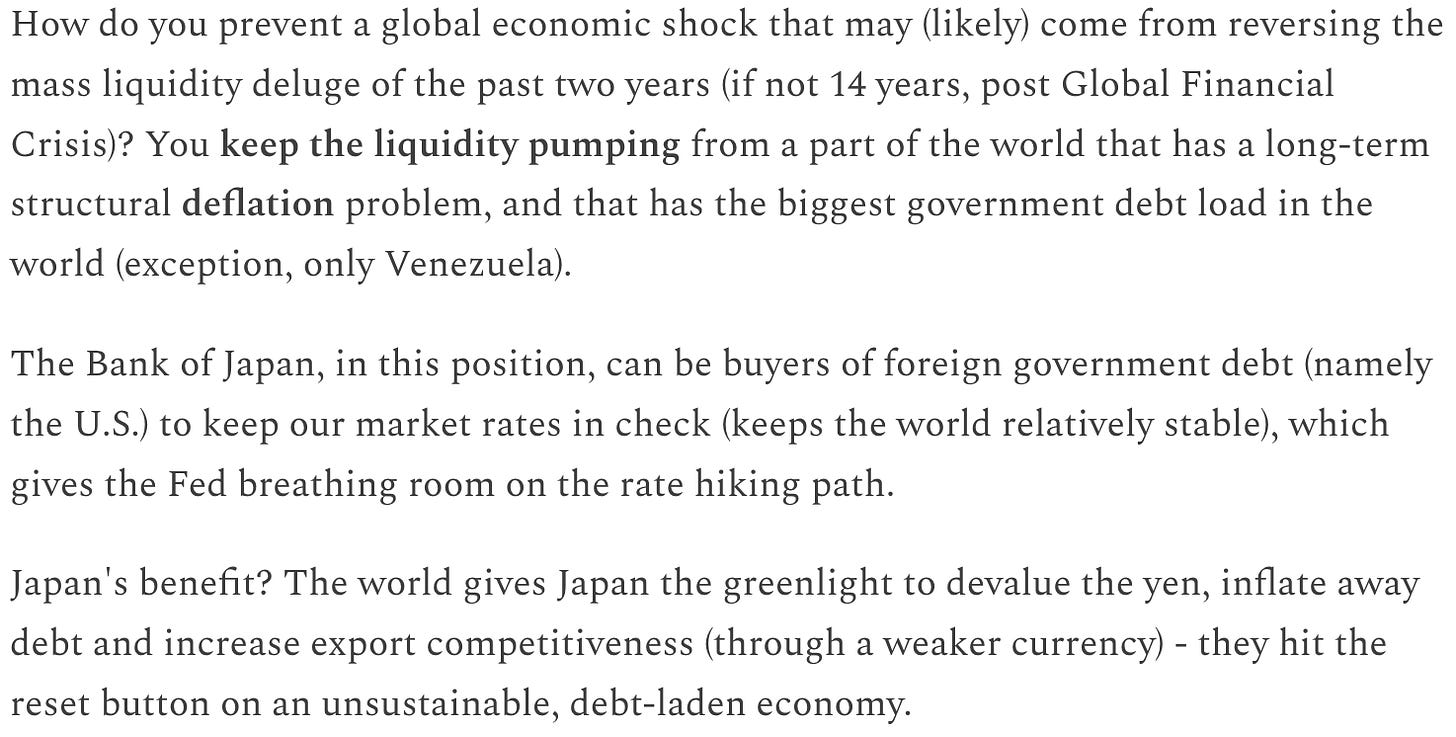Let’s pick up from my previous note - the Fed ended a series of ten consecutive rate hikes yesterday.
They took interest rates from zero to 5% over fourteen months - yet the 10-year yield remains in the 3s. This describes the dreaded "inverted yield curve" that most have pointed to as the reason to expect a looming recession.
But it's important to remember, we are in a world of explicit market manipulation. The world's central banks crossed the line in the sand at the depths of the Global Financial Crisis, and unsurprisingly, haven't turned back. Their fingerprints are all over markets, when it matters. They've outright manipulated bond markets along the way, with no apologies.
With that, given the clear evidence of trouble that arises when the benchmark U.S. 10-year yield has crossed the 4% threshold, in this recent tightening cycle, it's reasonable to think that the major central banks in the world might want to coordinate to keep a lid on the 10-year yield.
Who would be the logical buyer of Treasuries (therefore applying downward pressure on yields)?
For that answer, let's revisit an excerpt from my April 28th note of last year ( here ), just after the Fed started its rate hiking campaign.
With the above in mind, which country has bucked the trend of the global rate hiking cycle? Japan. Despite experiencing four decades of high inflation, they have continued to print yen, and buy assets (domestic and global). And you can see the devaluation in the yen since the Fed started hiking last year.
How do you position for the high-growth opportunities in this fourth industrial revolution (the digital revolution)?
Gryning | AI-Portfolio - where I cut through the noise and give you a pool of good ideas that have already been given a once over, to build an institutional grade portfolio allocating to high growth.
Places are limited, click below to join and keep an eye out for Welcome and Getting Started emails. We will begin building our portfolio with two foundational companies that will power the transformation to accelerated computing.






